"When you have a child with autism, no money in your pocket, debts at school, and your husband is going to war, you don't know what to do." The story of volunteer Olesia Korzhenevska
Veronika Nanovska
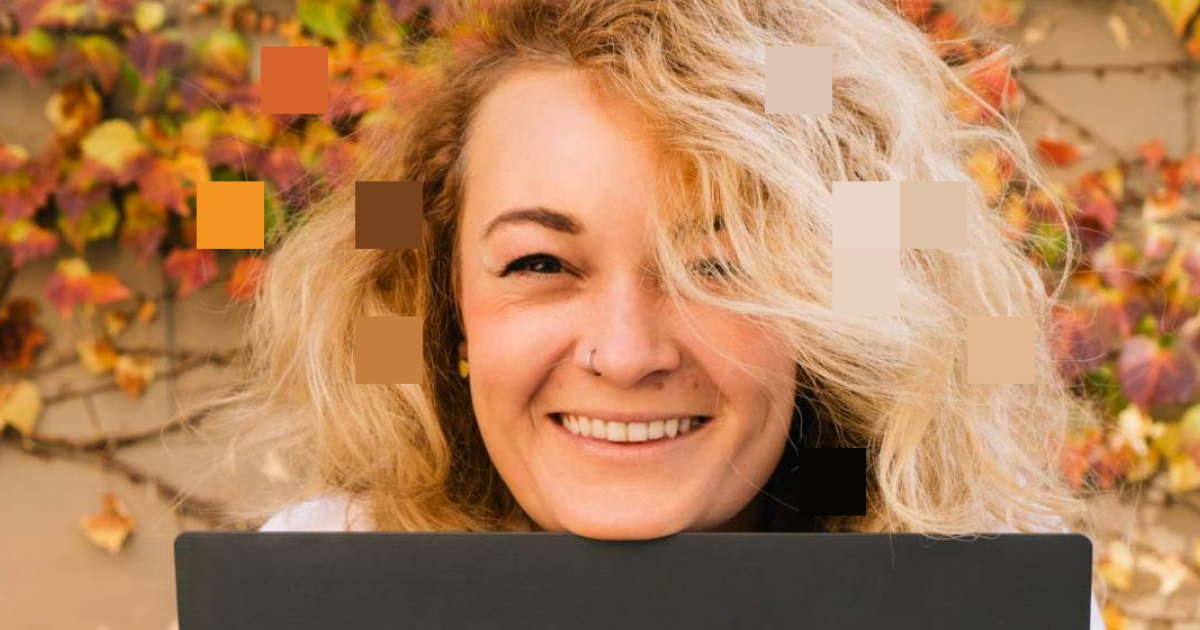
Olesia Korzhenevska shows a drawing by her son, Fedir, during a presentation of the drone technology instructor training programme for participants from the Zesyky 9¾ school. Her son is twelve years old and has an autism spectrum disorder. Today, Olesia spends time with him. Tomorrow, she will travel to Kramatorsk to announce a new fundraising campaign for the car to Avdiivka.
Olesia Korzhenevska is the founder of the 9¾ School of Audiovisual Arts, an inclusive education project for children. She is also a volunteer, producer of the project "I, Nina", and project manager for the support of cancer patients. Olesia's husband serves in the army with the 411th separate aerial reconnaissance battalion.
We spoke to Olesia about what it's like to run an inclusive school for her son and volunteer for the army.
Cotton wool and brilliant green
When we met Olesia, she had come to Kyiv with her son from a holiday in the Carpathians. During her trip, she received a message from one of the brigades she was helping — they urgently needed quadcopters with thermal imaging cameras. Olesia started raising money for a DJI Mavic quadcopter, and in two days, she managed to buy three for the soldiers. She says that fundraising is a daily activity for her.
"For a long time now, there is no feeling that the fundraising needs to be closed urgently — you just do it,"
Olesia says.
Olesia works with many departments and often has four or five more on the waiting list when she finishes a fundraiser. When she needs a car, she already knows where to get it. They can start making cars on credit, and when the fundraiser is over, you have to pay for them. Sometimes, the fundraising begins a week after the car has been delivered to the front. It's all thanks to effective communication, contacts and Olesya's reputation.
"The biggest problem with volunteering is that people who are not involved don't appreciate your work. Fundraising is also about communication, finding a trusted supplier and making arrangements as soon as possible. People who don't know this expect volunteers to report back immediately after the fundraiser and show them the car they bought".
Olesia has been volunteering since the end of 2013, since the Revolution of Dignity. Fedir was two years old. It was the only time in his life that he had a nanny. Olesia and her husband took turns going to the Maidan.
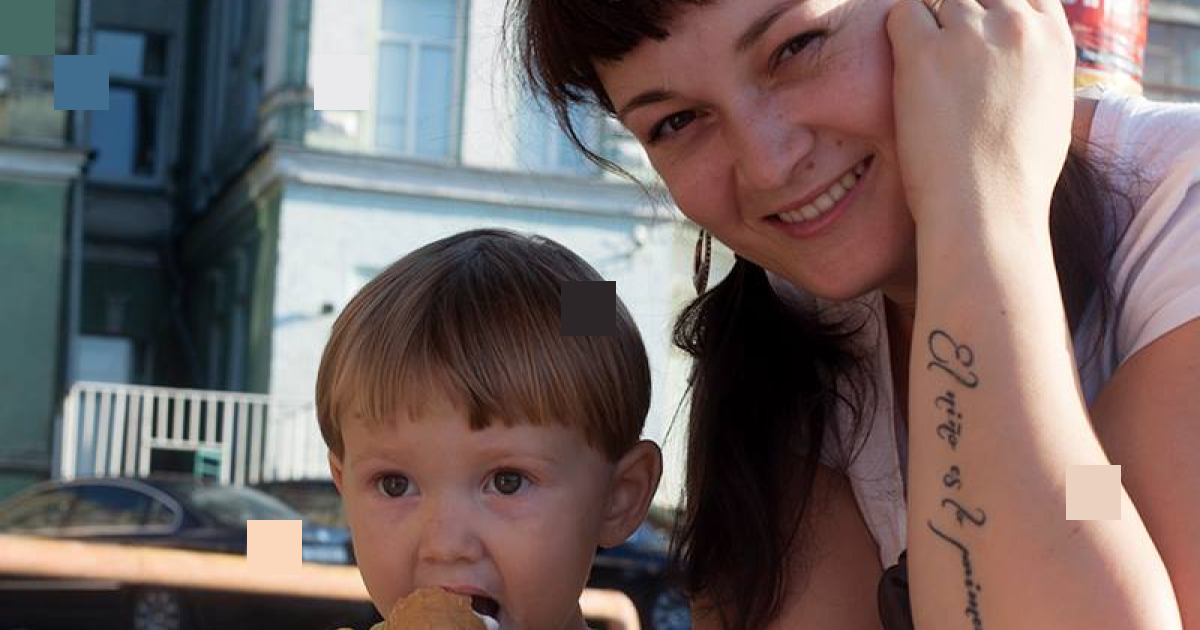
Even before any tents were on the square, Olesia started a Facebook page called "Housing for Euromaidan", where she collected announcements about accommodation for those who came to Kyiv. In December 2013, she set up a volunteer organisation called the Logistics Headquarters, which she registered as a public organisation in March of the following year. The team has accommodated more than 20,000 people and organised the provision of necessary equipment for Kyiv hospitals.
"When the wounded were taken to the hospital, people brought cotton wool and brilliant green. I went to the doctors and asked them what they needed. They said they needed cotton and brilliant green. I told them that the whole inventory was full of these things, and they were afraid to ask for anything else, saying that there were not enough operating tables and instruments in the trauma wards. In those days, it was easy to get in touch with the CEOs of the big companies that had bought the equipment. So we started communicating with them and making purchases."
In the beginning, with the help of her second husband, the organisation worked mainly as a call centre in cooperation with Euromaidan SOS. After a while, the team consisted of more than a hundred people from all over the world. People could call them with questions about accommodation and transfers. Some volunteers worked more than 26 hours in a shift.
In September 2014, during the occupation of Crimea, Olesia's team evacuated Crimeans from the peninsula — coordinating with transport companies and organising buses.
On her Facebook page, Olesia wrote: "I was exhausted, burned out, wanted to jump out the window, but I did what I had to do anyway. But should I have? It was my second revolution, taking me away from myself and my son for a long time".
"After the invasion, I began to think that sooner or later Fedir would have to register for military service"
Olesia and her husband wanted a child. The boy was born healthy — he scored nine on the Apgar scale after birth. The doctors were always very impressed with him at all his check-ups at the hospital.
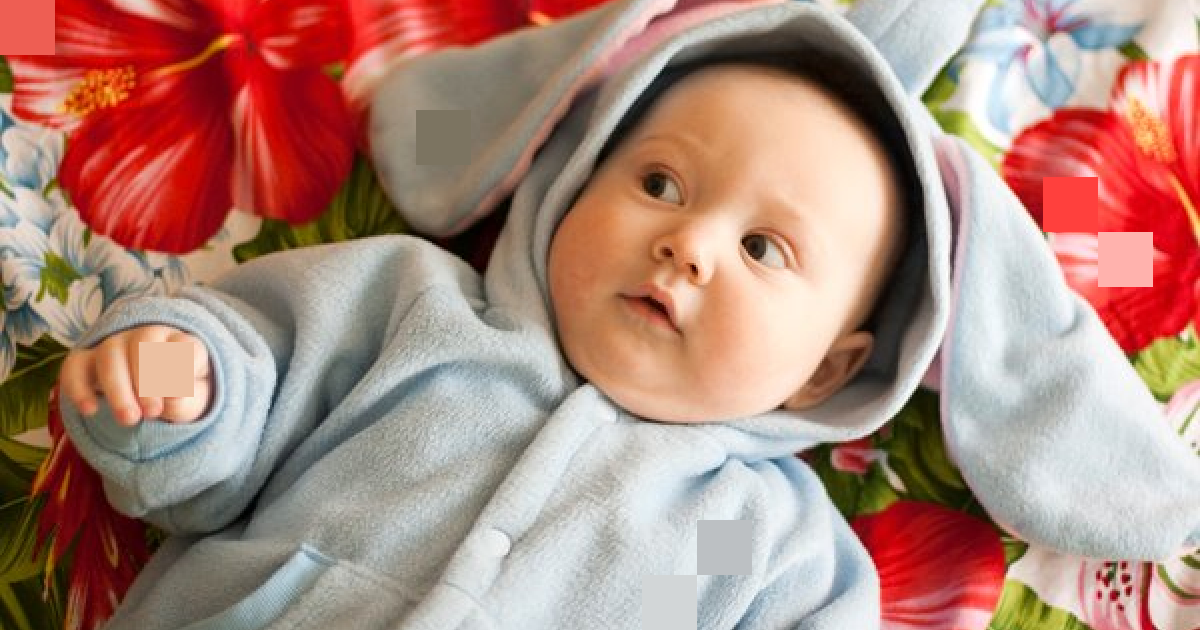
About a year later, Olesia noticed that something was wrong. In particular, Fedir did not talk for a long time, repeated specific movements, and threw tantrums. In the spring, when Fedir started going to a folk studio, the co-founder told Olesia that she had worked with a boy with autism who behaved very similarly to Fedir.
Olesia didn't know if there was any treatment, if Fedir would ever speak or what his life would be like. She says she was scared because she didn't know what to do.
Olesia's husband wrote to a friend who lives in Israel. She found a clinic in Tel Aviv where Fedir was examined. The family then travelled to Haifa, where a psychiatrist, a communication specialist and a sensory specialist examined their son in several appointments. After general consultation, Fedir was diagnosed with autism spectrum disorder at the age of three.
In the years following his diagnosis, his parents worked on his adjustment.
"It was a long period of acceptance and understanding that I had to get a disability certificate, stay in hospital and have the diagnosis confirmed regularly," says Olesia. "I had a crazy hysteria because I didn't understand. However, after the invasion, I started to think that Fedir would have to register with the military sooner or later, and I would have to explain why he could not join the army. So, we finally got the paperwork done last year, and he didn't have to go to the hospital.
Now Fedir calls everyone by name and surname. He knows the dates of birth of every member of the family. Once, Olesia took Fedir with her to the East. However, he still does not fully understand who the military is and what the war is about. Fedir associates it with air raids and house fires. He always waits for the air raid to end.
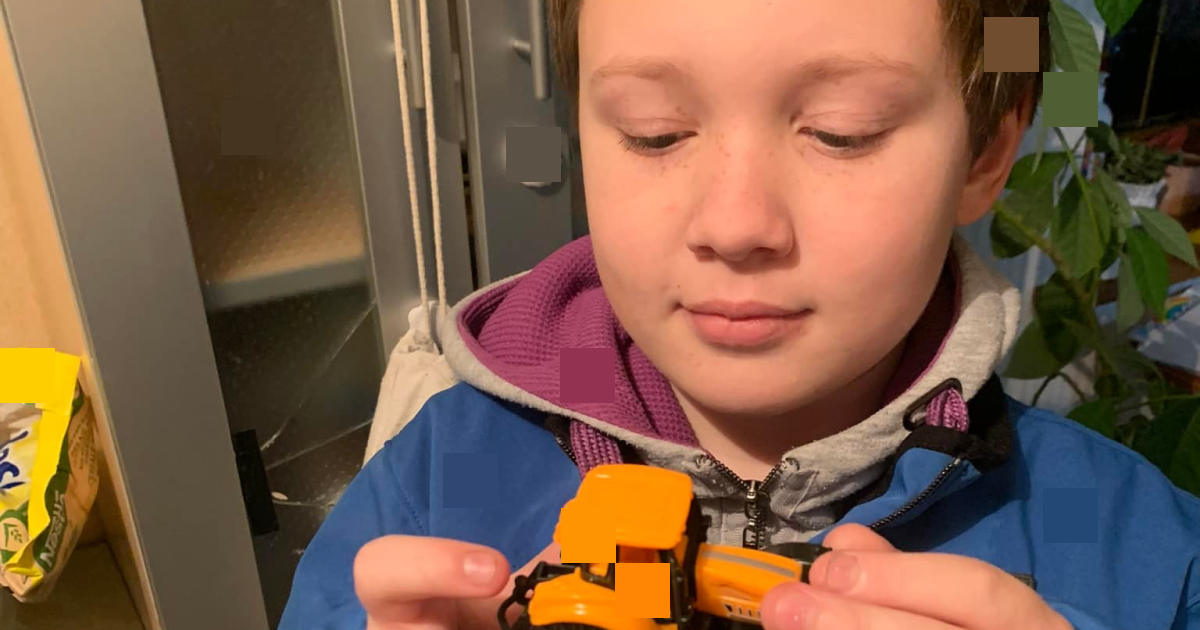
"Autism, in our case, is about 'Mum, I brushed my teeth! Applause!' at the age of almost 11," writes Olesia.
School for Fedir
When Olesia is in Kyiv, she spends most of her time at the school she created for her son. In 2021, she worked as a producer of the "I, Nina" project with Yanina Sokolova. At the time, Olesia did not know what format the school should have, as she had never been involved in children's education. At the same time, she understood that she had to figure it out because if I didn't teach my child myself, no one else would. She emphasises that children like her son need different approaches to education.
"I argued a lot with everyone, but I did what I thought was right. I would not have changed anything if I could have done it differently. That is why Fedir knows so much now,"
says Olesia.
There are two boys with autism at the school — Fedir and Danylo. A team of 13 specialists work with them. In addition to general subjects such as mathematics, geography, physical education, etc., the children individually learn music editing and mixing, singing, piano and drums.
During the week, Fedir and Danylo study at the school, and at weekends, the teachers run classes for typically developing children and courses for adults. No more than ten children are enrolled in any class to ensure each child receives individual attention. The school is currently staging a play based on Romeo and Juliet, which was adapted into a comedy. Today, teenagers have choreography and then an acting class. The next day, the adults come to learn the Argentine tango. The second floor of the school will be used for a painting session followed by a traditional singing session.
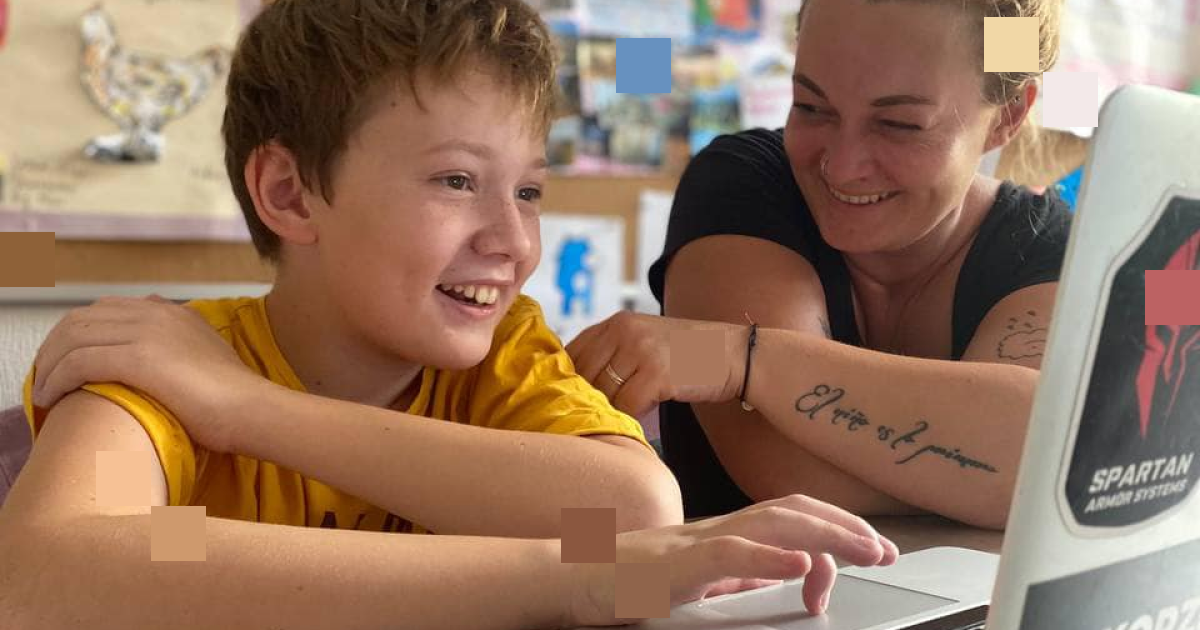
The following day, classes begin at Zesyky 9 ¾ School for CQB hand-to-hand combat in preparation for the army. Olesia decided to study military affairs after talking to one of the teachers. He wanted to join the army and was confused. Her friends in the military took up the idea of offering courses on basic preparation for the armed forces. Later, she wrote a post on Facebook inviting people to join the classes. Within a day, 40 students had signed up.
The school was created to give everyone the opportunity to master the basics of military professions — intelligence officer, fighter pilot, aerial reconnaissance officer, etc. The school offers theory and practice in drone control, tactical medicine and CQB (Close Quarters Combat). Some students have applied for jobs in the armed forces after graduation.
"I call this school "army preschool". Here, you can understand military affairs better [before general military training in a military unit - author's note]. Military personnel of different specialities talk about the specifics of their work, and the students can decide for themselves what kind of work they like and can do in the army," says Olesia.
"Soldiers should not have to pay for anything while they are at the front"
Initially, Olesia and her ex-husband decided to help a battalion they knew of because they didn't have enough resources for everyone, and it cost a lot of money to provide equipment for one soldier. They also started a project to produce posters explaining how to assemble and disassemble weapons, which were sent to all the training centres.
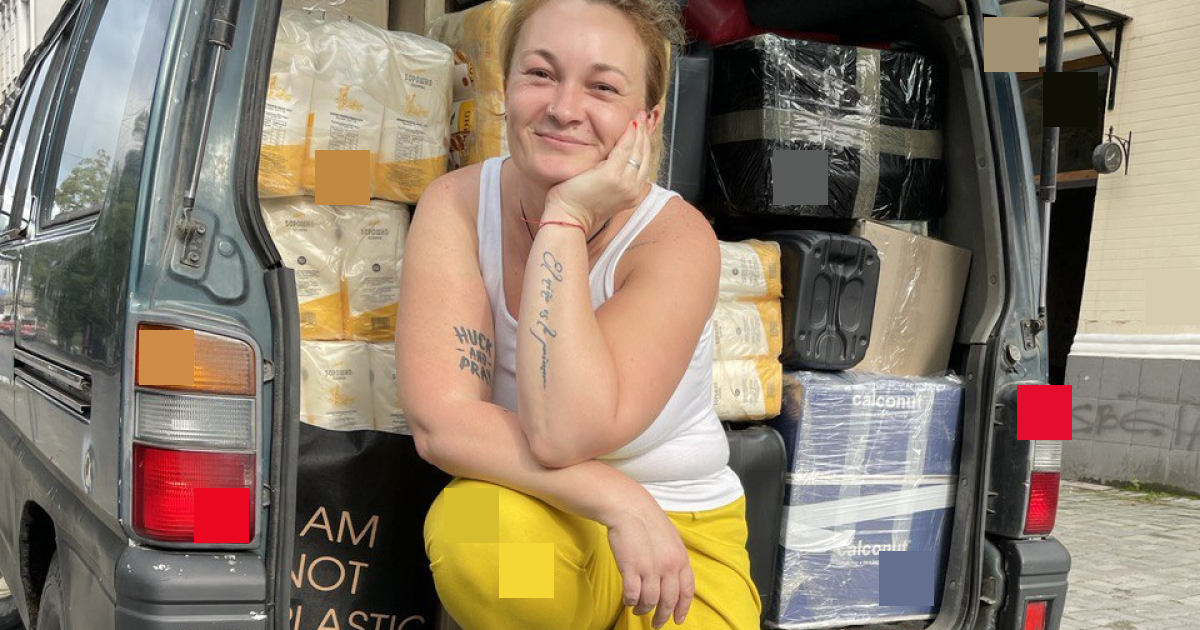
Olesia went to the front for the first time in September 2022 after the liberation of the Kharkiv region. After that, she went there every time just to see her beloved, who is serving in the Armed Forces.
"My friend introduced me to him. I didn’t know his name for long, only his nickname — Okich. Now it is Danylo's call sign," says Olesia. She is still angry that he went to the front at the beginning of the invasion, but at the same time, she is very proud of him.
"I thought it was necessary to make sure we were all right first. At least wait a few days. When you have a child with autism, no money in your pocket, debts at school, and your husband says he's going to war, and you don't know what to do. But he went, and I couldn't stop him. I want him to spend the night at home, not in a trench near Avdiivka. At the same time, I don't want him to leave the army but to continue to feel at home".
Danylo has become Fedir's best friend. Olesia says she could never have dreamed of this — how can you love someone else's child so much, so difficult and different?
Even when Olesia goes to see her beloved, she drives a car for the military and returns another for repairs if necessary. These trips are short, the longest being a week. She says she was afraid of driving at first. But that fear disappeared over time.
"The military should not have to pay for anything while at the front," says Olesia. "What the volunteers do, providing everything from basic food to all the household necessities should be done by the state.


